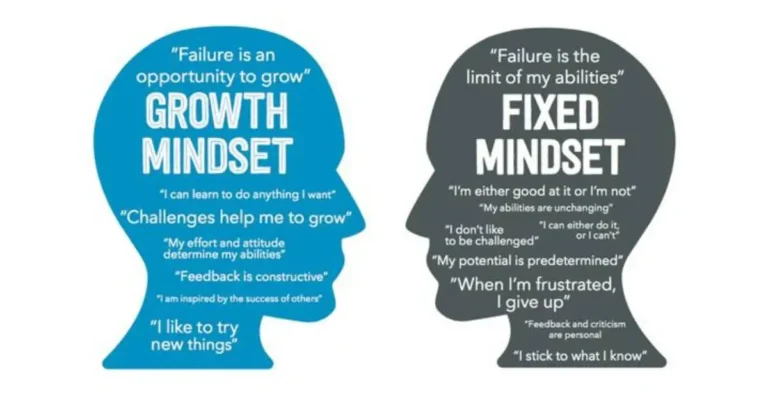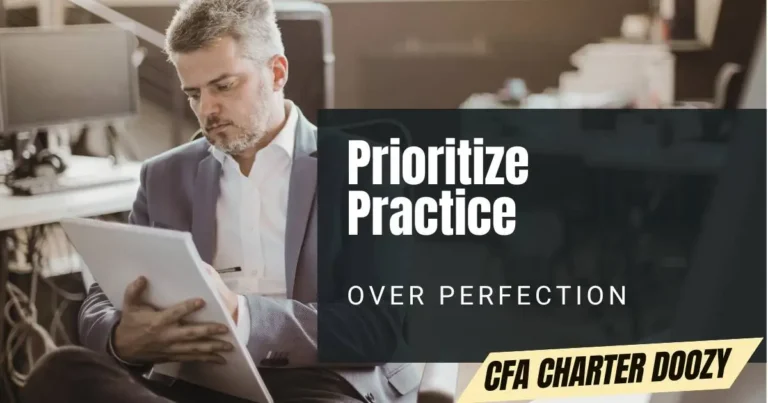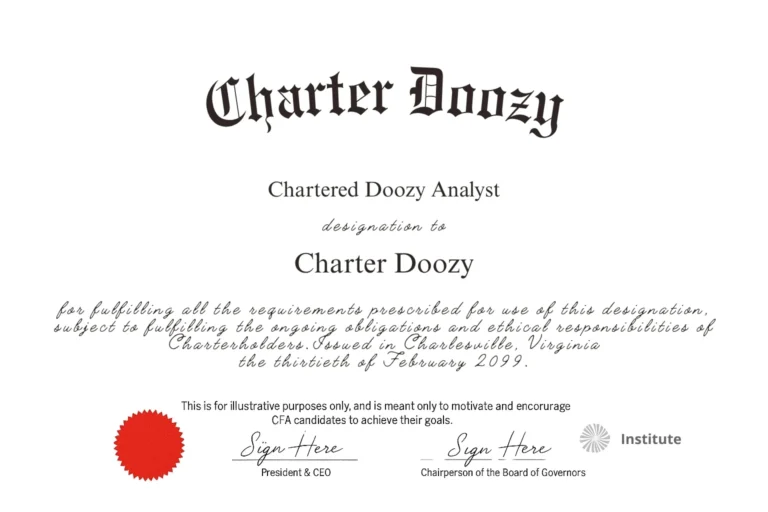Voltaire, the French Enlightenment writer and philosopher, once said, “Perfect is the enemy of good.”
This quote emphasizes that the pursuit of perfection can hinder us from achieving meaningful progress.

In the journey to becoming a CFA Charterholder, many candidates fall into the trap of striving for perfection in their studies.
A common scenario involves candidates meticulously working through the curriculum, aiming for complete mastery of each section before moving on to practice questions and mock exams.
This approach, while well-intentioned, often leads to disappointment and burnout 😮💨
Delaying practice until the end of the study plan usually means it never happens, as the focus on theory overshadows the practical application needed to pass the exams.
This perfectionist mindset is often ingrained from school and university, where students are guided and supported by teachers and tutors.
The sanitized coursework is designed to ease the learning process, but the CFA Program is more aligned with the real world, where:
There is too much information to know everything perfectly.
There is not enough time to deliberate endlessly.
Mastery requires integration across fields and disciplines, and knowing where to look or which model to use is often half the battle.
In the CFA Program, as in life, progress and learning are not linear.
You may not fully appreciate the theory until you’ve practiced questions and encountered your blind spots.
Mistakes drive learning, and learning drives progress.
This cyclical and organic process contrasts with the linear approach of traditional education.
Sometimes, neatly presented courses and polished training materials can give a false sense of security, robbing candidates of true learning until it’s too late.
To excel in the CFA exams, a shift in mindset is required—a more pragmatic approach that prioritizes practice and continuous improvement over the elusive goal of perfection.
Emphasizing Progress and Continuous Improvement
Perfection often manifests as an idealized study plan.
Candidates want to cover every section multiple times, including revision, practice questions, and mock exams.
These study schedules can look impressive but are often unrealistic and intimidating.
An overwhelming study routine can backfire, as our willpower and self-motivation are fragile. If the mountain is too tall, we may fail to climb it before we even begin.
Falling behind can cause things to unravel quickly.
Instead of chasing perfection, CFA Candidates should focus on deliberate progress and continuous improvement. By making small, incremental improvements each day, candidates can build a strong foundation of knowledge and skills.
Consistently dedicating time to study and practice questions can lead to significant progress over months.
Bill Gates famously said, “Most people overestimate what they can do in one year and underestimate what they can do in ten years.” Similarly, CFA Candidates often overestimate what they can achieve in one day and underestimate what they can accomplish in ten weeks.
Celebrate small wins, play the long game, and recognize that growth keeps motivation levels high and reduces the pressure to be perfect.

Dealing with Setbacks and Maintaining a Growth Mindset
Setbacks are an inevitable part of the CFA journey.
Whether it’s a failed exam, a poor score on a mock exam, or struggling with a particular topic, setbacks can be discouraging.
Perfectionists often struggle to overcome adversity because the gap between perfection and failure feels insurmountable.
However, adopting a growth mindset can turn these challenges into opportunities for learning and development.
A growth mindset embraces the idea that abilities and intelligence can be developed through hard work and dedication, contrasting with a perfectionist mindset that struggles to reconcile setbacks with success.

When faced with failures, analyze what went wrong, learn from your mistakes, and incorporate those learnings into your knowledge base.
Find the courage to get back up and keep moving forward.
The Value of Practicing Real Exam Questions
One of the most important parts of preparing for any CFA exam is practicing real exam questions.
This practice helps candidates understand the types of questions they will face, the complexity of the content, and the best ways to approach answering them.
It also builds familiarity with the exam’s language and style, reducing anxiety and boosting confidence.
Incorporate real exam questions into your study routine to gain a realistic sense of your progress and areas that need improvement.
Practice makes PROGRESS.
As one candidate put it:
Anyway, reading is important but just reading is not enough to pass. Spend more time practicing. That at least put me just beneath the 90th percentile (and I was confident to go above)
Doozy Digest
A newsletter for CFA candidates
Subscribe for:
✔ Insightful tips
✔ Expert advice
✔ Career motivation
✔ Exam inspiration
Stay updated and subscribe today!
Importance of Familiarizing Yourself with the Exam Format
Understanding the CFA exam format is crucial for success.
The exams are known for their unique structure, including multiple-choice questions, item sets, and essay questions.
Familiarizing yourself with this format can help you manage your time effectively during the exam and reduce surprises on test day.
Practice under exam-like conditions, timing yourself, and simulating the exam environment to build comfort and confidence.
Train for the marathon under real-world conditions, not on the treadmill.
Here’s the words from once recent CFA Level II passer:
Definitely don’t do all the questions with ‘review mode’ on… for me, personally, when doing practice questions not getting instant feedback on each question after I click an answer was incredibly helpful for taking the actual test.
Encouragement to Keep Moving Forward, Even When Mistakes Are Made
Mistakes are not failures.
They are stepping stones to success.
It’s crucial to keep moving forward, even when mistakes are made. Every mistake is an opportunity to learn something new and improve.
Reflect on what went wrong, seek feedback, and adjust your approach.
A rule of thumb I tell candidates is to spend equal time reviewing and learning from their practice exams as they do taking them.
Part of the exercise is gauging your standing relative to a pass mark, but a big part is active learning.

Remember, the CFA exams are rigorous, and it’s normal to encounter difficulties.
The key is to persevere, learn from each experience, and maintain momentum.
In summary, prioritizing practice over perfection is key to success in the CFA exams.
Emphasize progress and continuous improvement, embrace setbacks with a growth mindset, and keep moving forward despite mistakes.
Leverage real exam questions, familiarize yourself with the exam format, utilize CFA Institute resources, and develop strategies for reviewing your performance.
By focusing on these elements, you can build the knowledge, skills, and confidence needed to excel in the CFA exams and achieve your goal of becoming a CFA Charterholder.
Suggestions
Prioritize Practice Over Perfection – Focus on practical application and continuous improvement rather than striving for perfect understanding before attempting practice questions and mock exams.
Maintain Momentum and Persevere – Keep moving forward even when mistakes are made. Reflect on what went wrong, seek feedback, and adjust your approach. Consistently dedicate time to study and practice questions, focusing on small, incremental improvements
Adopt a Growth Mindset – Embrace setbacks as opportunities for learning and development. Analyze mistakes, learn from them, and incorporate these learnings into your knowledge base.

